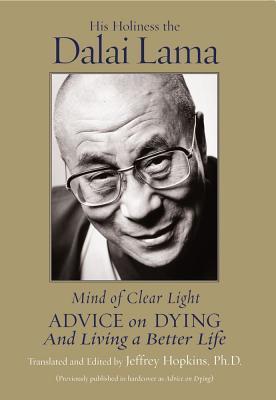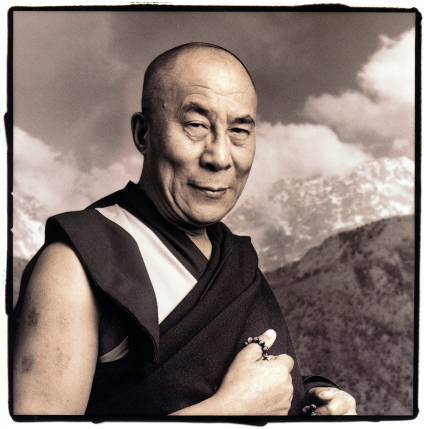
Everyone dies, but no one is dead, goes the Tibetan saying. It is with these words that Advice on Dying takes flight. Using a seventeenth-century poem written by a prominent scholar-practitioner, His Holiness the Dalai Lama draws from a wide range of traditions and beliefs to explore the stages we all go through when we die, which are the very same stages we experience in life when we go to sleep, faint, or reach orgasm (Shakespeare's "little death"). The stages are described so vividly that we can imagine the process of traveling deeper into the mind, on the ultimate journey of transformation. In this way, His Holiness shows us how to prepare for that time and, in doing so, how to enrich our time on earth, die without fear or upset, and influence the stage between this life and the next so that we may gain the best possible incarnation. As always, the ultimate goal is to advance along the path to enlightenment. Advice on Dying is an essential tool for attaining that eternal bliss.
Author

Jetsun Jamphel Ngawang Lobsang Yeshe Tenzin Gyatso (born Lhamo Döndrub), the 14th Dalai Lama, is a practicing member of the Gelug School of Tibetan Buddhism and is influential as a Nobel Peace Prize laureate, the world's most famous Buddhist monk, and the leader of the exiled Tibetan government in India. Tenzin Gyatso was the fifth of sixteen children born to a farming family. He was proclaimed the tulku (an Enlightened lama who has consciously decided to take rebirth) of the 13th Dalai Lama at the age of two. On 17 November 1950, at the age of 15, he was enthroned as Tibet's ruler. Thus he became Tibet's most important political ruler just one month after the People's Republic of China's invasion of Tibet on 7 October 1950. In 1954, he went to Beijing to attempt peace talks with Mao Zedong and other leaders of the PRC. These talks ultimately failed. After a failed uprising and the collapse of the Tibetan resistance movement in 1959, the Dalai Lama left for India, where he was active in establishing the Central Tibetan Administration (the Tibetan Government in Exile) and in seeking to preserve Tibetan culture and education among the thousands of refugees who accompanied him. Tenzin Gyatso is a charismatic figure and noted public speaker. This Dalai Lama is the first to travel to the West. There, he has helped to spread Buddhism and to promote the concepts of universal responsibility, secular ethics, and religious harmony. He was awarded the Nobel Peace Prize in 1989, honorary Canadian citizenship in 2006, and the United States Congressional Gold Medal on 17 October 2007.